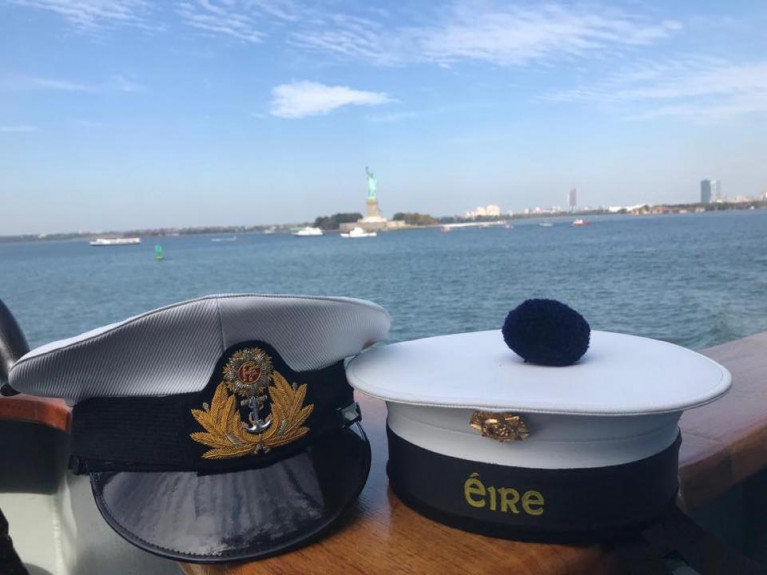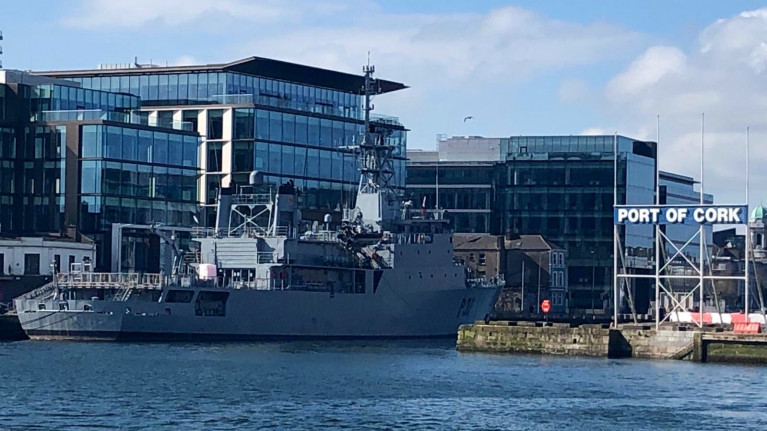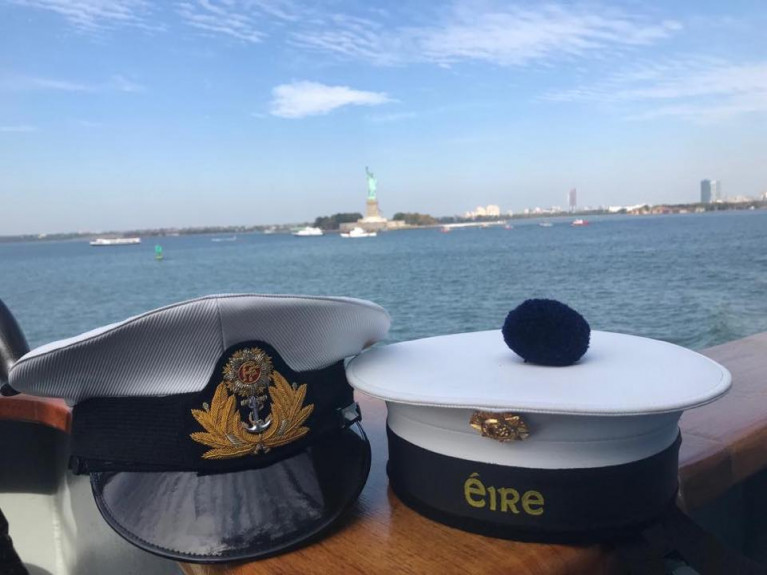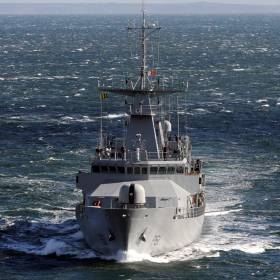Displaying items by tag: Crew Shortage
Since the start of the year, the Naval Service, which was only able to have in operation a single patrol ship within Irish waters, could have two more vessels made available within a matter of weeks.
Due to a combination of not having key crew and mechanical issues, this has severely impacted the operations and ability of the Cork Harbour-based Naval Service. As only a single vessel has been dispatched from the naval base on Haulbowline to carry out key duties that cover drug interception duties, fishery stock monitoring, as well as (SAR) search and rescue.
According to Michael O’Sullivan, the former director of Europe’s Maritime Analysis and Operations Centre, Narcotics MAOC (N), based in Lisbon, Portugal, said “by not resourcing our navy, we have handed the keys of the country over to the drug cartels to do with us what they wish.”
According to the Irish Examiner, which has more on the story, a second of its larger ships, possibly the OPV80 P50 class LÉ Niamh, could return to patrol service within the next few weeks.
Personnel in the Naval Service who signed up for a special loyalty bonus to ensure there were enough crews to undertake sea patrols are still waiting to be paid the first tranche of the money, “which is now months overdue.”
The Sea Service Commitment Scheme was introduced to much fanfare last January by Minister for Defence Simon Coveney in an effort to provide some certainty about adequate numbers of personnel being available for offshore patrols. It was introduced because of the lack of adequate crew numbers in general, and specialists in particular.
The Naval Service has been dogged by personnel shortages in recent years. This has led to two ships being tied up and others delayed going out to sea on patrols because they don't have full crews.
The loyalty payment of €10,000, which is taxable, was offered to those who signed up to complete two years duty at sea. This was supposed to be paid in four six-monthly tranches.
More from the Irish Examiner story.
Crew Shortages Causes Concern Threatening Naval Service Missions at Sea
Crew rostering of the Naval Service now have to frequently postpone seagoing missions due to its chronic manpower shortage and the effects of Covid-19.
Within the last year the service’s six operational ships have been regularly operating with close to the bare minimum of crew members, meaning if a small number of sailors become unavailable and no replacements can be found, the ships cannot go to sea.
In January, The Irish Times reported the LÉ Ciara was forced to delay a patrol mission for three days as it sought replacement crew members. According to senior Naval officers this has now become a regular occurrence.
In response to queries, a spokeswoman for the Defence Forces said “it is not uncommon for patrols to be delayed if an essential crew member is unable to sail due to force majeure”.
She said the Naval Service operated a “family-friendly policy” of giving replacement crew members 72 hours before deployment.
“Unfortunately, due to Covid-19, there has been a recent and expected rise” in the number of incidents where a replacement crew member cannot step in.
Naval sources also expressed doubt the Government’s new “loyalty scheme”, which offers a bonus of up to €10,000 a year for seagoing duties, would make a significant difference in the number of personnel leaving the Naval Service.
The scheme only applies to personnel with more than three years’ service, meaning there is little incentive for recently graduated personnel to stay on if they are offered employment in the private sector, they said.
Much more from the Irish Times can be read here.
A year ago after being forced to tie-up two ships due to manpower shortages, the Naval Service continues to haemorrhage personnel and may have to take another vessel off operational duties later this year.
Military sources have told the Irish Examiner that fearsbout tying up yet another ship “are well justified” due to a number of factors.
The current strength of the Naval Service has fallen to less than 880, whereas it should be 1,094.
Last June, a decision was made to take LÉ Orla and flagship LÉ Eithne off seagoing duties because of manpower shortages and health and safety concerns.
On-the-job training in the Naval Service was cancelled due to Covid-19 so that the Defence Forces could provide as much manpower as possible to help in the national emergency.
But, as lockdown measures continue to ease, training is returning and that means there will be fewer people available to man ships.
At any one time, there are up to 200 cadets, recruits, and technicians normally in full-time training.
In addition, even if the Navy was awash with recruits, social distancing regulations mean it will have to reduce recruit class numbers.
For further reading (click here) on the state of personnel levels.
Volunteers Sought by Naval Service to Fill Gaps
#navy - Patrol ship captains of the Irish Naval Service are being forced to seek ‘volunteers’ to crew their vessels due to decreasing numbers available.
The Irish Examiner has learned the Naval Service is desperately trying to crew a nine-ship fleet with numbers which cannot service seven.
A common practice is emerging where personnel, assigned to specific ships, are being asked to fill gaps on other ships which primarily conduct fishery patrols. And, despite the shortage, the Government is still pressing ahead with plans to purchase a new ultra-modern multi-role vessel (MRV) which could cost up to €200m.
Chronic shortages, however, exist in many sections of the Naval Service. According to the Defence Forces, the minimum number of personnel required to run the Naval Service is 1,044.
But the official and latest figures show a total of 974 which includes 195 personnel engaged in professional qualification (PQ) training who cannot serve at sea. They include recruits and officer cadets who are undergoing basic training, technical trainees, and Ordinary to Able Rate (OARs) trainees.
Further reading on this crew-shortage story can be seen by clicking this link.































































